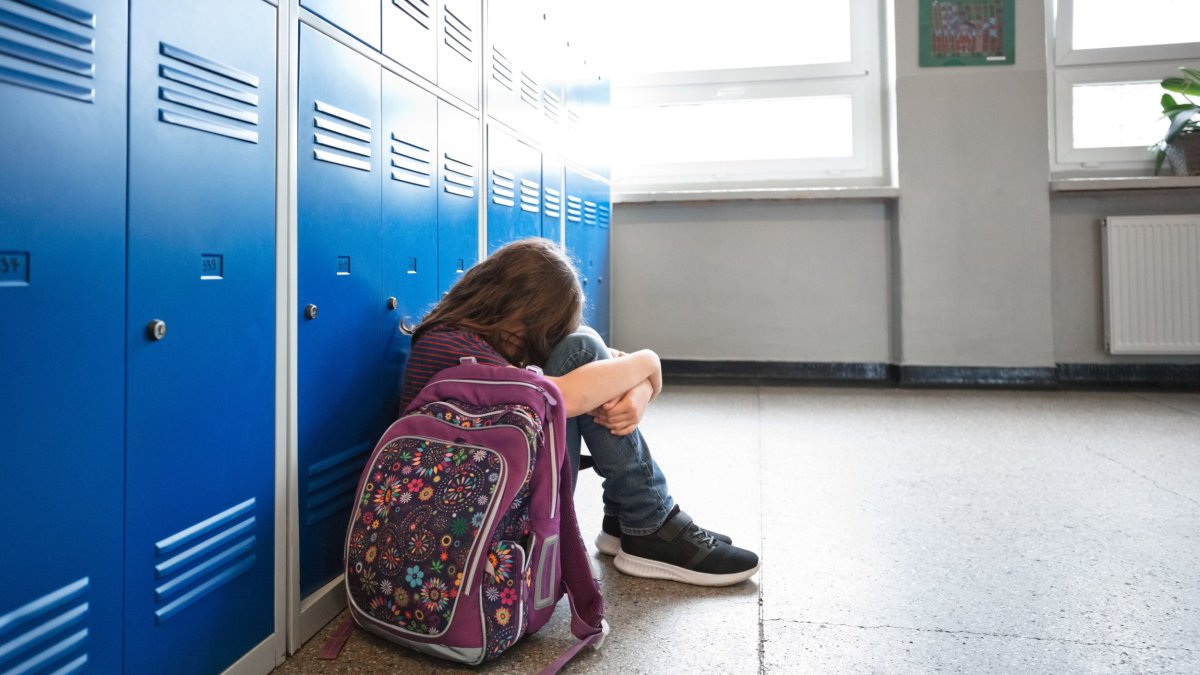
The Government’s policy is encouraging a regressive society that disregards children’s human rights
December 21, 2023 4:29 pm(Updated 4:53 pm)
I grew up under Section 28, the notorious law banning support for lesbian and gay youth in schools during the 1980s. I was five when Margaret Thatcher announced that “children who need to be taught to respect traditional moral values are being taught that they have an inalienable right to be gay”.
Long before I came out, kids at school knew I was different. Growing up, I was bullied and called a girl. I was stabbed at 14. I was moved to other schools after that, but continued to have issues with bullying and violent attacks as I struggled to keep my transness a secret.
I came out first to my parents at 15 in the late 90s. My mother blamed herself. Then I came out at school. I told other students a different name by which I wanted to be known. I had a change of clothes I would take to school with me to change into. My mother feared I might be attacked again and threatened that if I continued I wouldn’t be able to live under her roof.
I had no support from school. Growing up as a trans youth was brutal. I was assaulted many times after properly coming out, on at least a weekly basis for two years. I had a front tooth knocked out. I got chased down the street with a loose fence post that was lying around. I heard through the grapevine that a nearby school head used to brag about his “lads” sorting me out.
I couldn’t rely on my parents because of the threat of being kicked out, so I would hide my injuries and assaults. I learned very quickly that I also couldn’t trust the police to protect me because I was seen as the one doing something wrong by dressing and acting outside what was expected of a young person. I couldn’t rely on teachers who would usually mock me.
This obviously wasn’t just happening to me – a bisexual girl at school was outed to her abusive parents by a teacher as a punishment. Homophobic, biphobic and transphobic abuse was rife and institutionally expected. The mental health of LGBT young people at school was dire in this environment. Any sort of support from teachers was effectively banned; the closest many of us got to finding this support was simply confiding in teachers who would overlook opportunities to punish us for being LGBTQ.
The current proposals in the education guidance on gender-questioning youth seek to go much further than Section 28. This includes proposing to legitimise harassment of trans young people in the form of explicitly condoning teachers who refuse to respect their identities and directing teachers to inform on gender-diverse young people as a “safeguarding” matter.
This guidance completely ignores the fact that young trans people are at a very high risk of being made homeless by their families, due directly to rejection and abuse in the home – rejection that, as in my case, can be wrapped in well-meaning family love and yet, because of the culture of fear around LGBTQ youth, frequently turns to discipline and harm.
The draft guidance on “gender-questioning children” in schools has been widely criticised for its probable legal risks, for its conflicts with basic safeguarding of young people, as well as being dubbed a “new Section 28”.
Section 28 was in some senses much less ambitious than the proposed guidance. It was never tested in court and “only” banned encouragement of homosexuality. Trans and gender-diverse young people were not even mentioned. But it was enough to have wide-ranging consequences in terms of its chilling effects. My story is one of hundreds of thousands of others who lived through its 25-year reign from 1988 to 2003.
There is a battle in Parliament between those who idealise strength through acts of senseless cruelty and an opposition who think permitting cruelty will maintain a front of sensibility.
We’re told this is just politics. This creates a huge amount of emotional pull – both for those who seem to want to make life hard for young trans and gender diverse people, and for those horrified by the inevitable harms this will result in. But this emotional pull and the toxic Punch and Judy theatre of Parliament takes our focus away from the young people affected.
This draft guidance is about punishing young gender-diverse people. But it is also about producing a regressive society where the human rights of the child go out of the window. Instead of safeguarding children, what is being safeguarded is a dictatorship of “tough” parents and schools over young people that have created environments that are no longer safe for them.
The draft says that schools need not allow children to “socially transition”. This is an attack on young people’s basic rights to self-expression, self-understanding, exploration and development of their own identities and minds as young human beings – things that will shape their whole future and ability to function. The concept of “social transition” is a medicalisation of something trans youth (like I used to be) have already been doing for decades: following our own needs, often without support and at risk. We must protect young people’s rights to exist and express themselves.
It’s urgent that children’s rights charities and educational sector unions and professional bodies join forces to fight this. Children are safer when their rights to real safeguarding of their interests are protected. Parents are better able to raise young people well when they do not use threatening or abusive conduct as a shortcut. Protecting trans youth is a fight that needs to be fought for the whole principle of the rights of the child.
Mallory Moore is a researcher monitoring hate and organised anti-trans harm for Trans Safety Network




